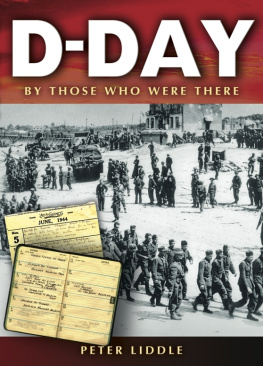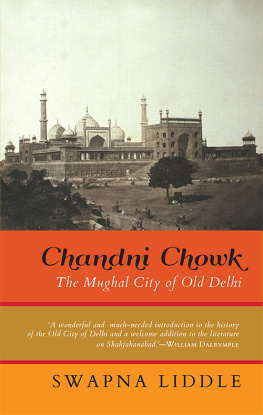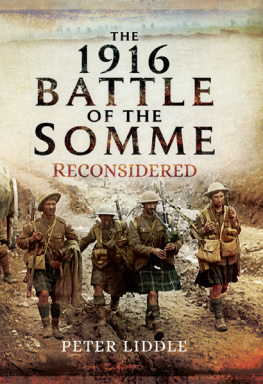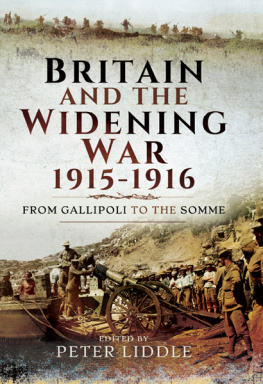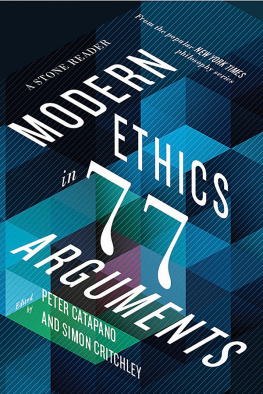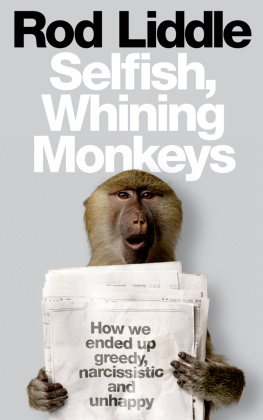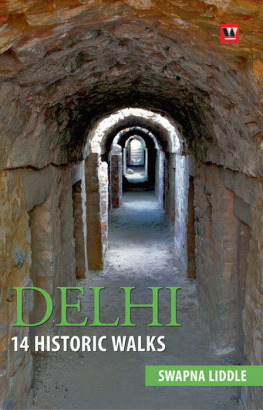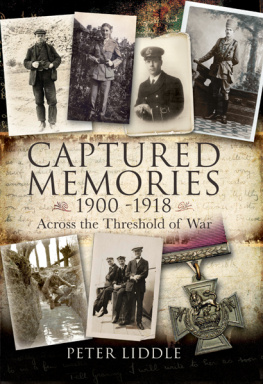by
Vincent Orange BA, PhD, MRAeS
Reader in History, University of Canterbury
Christchurch, New Zealand
H ow often have we heard someone say, Oh, how I wish Uncle Bob was still alive. He used to tell us kids such tales of his life and when he was in the war, but I cant remember details now, and, to be honest, in those days I wasnt really interested about his life I was more interested in my own! As for Bobs letters and papers: Well, they used to be in an old cardboard box in the garage roof, but after he died the house was sold, we had a grand clear-out and Im afraid they went to the dump.
Fortunately, Peter Liddle has devoted the best part of his life to catching the numerous Uncle Bobs in many parts of the world while they are still with us. He and his associates have recorded their memories and collected their various letters and memorabilia, which are now stored in the Liddle Collection at Leeds University and at the Second World War Experience Centre, also in Leeds. There they are available as a permanent and lasting record of personal service and experience in both world wars for the benefit of this and future generations.
The impressions of those at the sharp end of great events are an essential part of history, just as salt and pepper are to a boiled egg. How pleased we would be if, for example, one of Peters ancestors had acquired for us an account of all the hassles involved in getting Hannibals elephants over the Alps, or if a later ancestor had left us an interview with one of Henry Vs archers at Agincourt. Peter, of course, set his sights on all those who survived the crucible of world war experience: on all services, all ranks, civilian and pacifist experience, and indeed on those who served in opposing forces or endured enemy occupation. Until now his books have had the First World War as their focus. This book marks an advance into what is for him, in published work, new terrain.
Like his namesake, Peter is a fisherman and has thrown out many lines during the last umpteen years. In Richard Campbell Begg he caught a whopper! Richard is a New Zealand-born doctor, now retired, who also had a lively time of it in the Royal Navy during the Second World War, as you will read within. In 1993 Richard visited Peter Liddle in Leeds and, being most impressed with what he was doing, presented him with his memoirs, letters, etc, and was duly taped. Then, quite forgetting the immortal words known to all servicemen in all ages never volunteer -Richard did just that and, inevitably, found himself hard at work. Peter asked him to tape Commander Hickley. One interview led to another and Richard ended up with well over 50 personal accounts of experiences of war on land, at sea and in the air. Enough for a book as Harper Collins readily agreed.
But this book is not merely a written record of what appears on the tapes. It is a history of the Second World War from the beginning to the end, covering many theatres of conflict and seen from the personal perspective of individuals who took part, using the relevant extracts from their accounts. Its 18 chapters are supported by illustrations of the contributors and the events described, and in each there is a short introduction by the editors giving background details of that particular campaign or operation. Biographical notes on the contributors appear in the Appendix. The language, grammar and idiom used by the contributors in talking of their experiences are largely reproduced in the written account in the book. All this tends to give the reader the feeling of being right alongside the raconteur as he or she relives the experiences of long ago.
For the general reader with an interest in the Second World War, I can think of no better starting point from which to grasp the huge scale of the conflict and yet its dimension in terms of the individual. For the specialist reader there are countless personal insights into what will, of course, be a more familiar story.
Sadly, at least five of the contributors will never read this book: they are gone. But thanks to the endeavours of Peter and Richard their experiences will not be forgotten. I am sure that all the contributors would say, What I did was nothing special. Better men than I did much more. Some were killed before anyone could record what they did and others did not get my opportunities to make a mark. On the other hand, each one of these survivors can be seen as representing dozens of their less fortunate comrades.
As for me, and countless men and women of my generation, we will ever be in their debt. At 64 I have never heard a shot fired in anger, never seen anyone killed or grievously wounded, never been frightened by anything more lethal than a cricket ball, hardly ever been in any physical distress, and my only real worries have been over such unavoidable subjects as women, money and promotion. The contributors to this book have been far more fundamentally tested. I am deeply grateful to them for helping to spare me their experiences.
The wonderful words inscribed on a memorial stone near the entrance to the Commonwealth War Graves Commission War Cemetery at Kohima, Assam, India, can never be quoted too often:
When you go home
Tell them of us and say,
For their tomorrow
We gave our today.
I t is the sheer scale of the Second World War that most of us, however keen to grasp its course in outline and the interrelation of its geographically and sometimes time-separated parts, find daunting. In terms of its time-span, its land masses and oceans that were the scene of prolonged conflict, its nations, races and peoples committed to or drawn into the conflict, its human and material cost, the statistics of the Second World War challenge the capacity to comprehend.
At one and the same time, the link between the Eastern Front and its Stalingrad, North Africa and its El Alamein, the Arctic, Atlantic and Mediterranean with their sea-lines, the aerial bombing offensives, Home Front war materials production and civilian morale, is clear, and yet it is only retained in a collective sense by the most self-disciplined mind. As we write this we can almost hear the protests of readers, Have they not heard of the Pacific War too? To which we make response that indeed we have, and this book will certainly not fail by under-representation in that respect.
While the editors of this book have no grand ambition to succeed where few have attempted and success is rare achievement in conveying a worldwide vista of warfare they believe that in reducing the unmanageable scale to one of individual participants recalling the part they played in key events, general or special circumstances, major campaigns or battles, they bring the reader as near as he may wish to be to living through the challenge of World War from September 1939 to August 1945.
This book had its roots in the first meeting of the editors in Leeds in 1993. The rescue of the evidence of wartime experience was the main subject on the agenda. Retired New Zealand doctor and public health specialist Richard Campbell Begg, a naval officer in the Second World War, had responded to a New Zealand newspaper appeal by British historian Peter Liddle, keen to draw attention to his work in rescuing the evidence of wartime experience. At that stage Peter was the Keeper of the Liddle Collection, a world-renowned archive of personal experience in the First World War, based at Leeds University. Over some years he has been turning his attention to the Second World War, and has already achieved a substantial collection of material of personal involvement in that war, so much so that since the original meeting with Richard it has been necessary to set up a separate collection, which is also housed in the city of Leeds as a Second World War Experience Centre with charitable status and its own Trustees, staff, Patrons and Association of Friends. Peter has left the University and feels highly privileged to have been appointed the Director of the Centre, which continues to grow and flourish.



